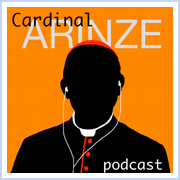Gospel for July 1, 12th Week in Ordinary Time
From: Matthew 8:5-17
The Centurion's Faith
[5] As He (Jesus) entered Capernaum, a centurion came forward to Him, beseeching Him [6] and saying, "Lord, my servant is lying paralyzed at home, in terrible distress." [7] And He said to him, "I will come and heal him." [8] But the centurion answered Him, "Lord, I am not worthy to have You come under my roof; but only say the word, and my servant will be healed. [9] For I am a man under authority, with soldiers under me; and I say to one, `Go,' and he goes, and to another, `Come,' and he comes, and to my slave, `Do this,' and he does it." [10] When Jesus heard him, He marvelled, and said to those who followed Him, "Truly, I say to you, not even in Israel have I found such faith. [11] I tell you, many will come from east and west and sit at table with Abraham, Isaac, and Jacob in the Kingdom of Heaven, [12] while the sons of the kingdom will be thrown into the outer darkness; there men will weep and gnash their teeth." [13] And to the centurion Jesus said, "Go; be it done for you as you have believed." And the servant was healed at that very moment.
A Number of Cures
[14] And when Jesus entered Peter's house, He saw his mother-in-law lying sick with fever; [15] He touched her hand, and the fever left her, and she rose and served Him. [16] That evening they brought to Him many who were possessed with demons; and He cast out the spirits with a word, and healed all who were sick. [17] This was to fulfill what was spoken by the prophet Isaiah, "He took our infirmities and bore our diseases."
___________________
Commentary:
5-11. "Centurion": an officer of the Roman army in control of one hundred men. This man's faith is still an example to us. At the solemn moment when a Christian is about to receive Jesus in the Blessed Sacrament, the Church's liturgy places on his lips and in his heart these words of the centurion, to enliven his faith: Lord, I am not worthy...".
The Jews of this time regarded any Jew who entered a Gentile's house as contracting legal impurity (cf. John 19:28; Acts 11:2-3). This centurion has the deference not to place Jesus in an embarrassing position in the eyes of His fellow Israelites. He shows that he is convinced that Jesus has the power over disease and illness; he suggests that if Jesus just says the word, He will do what is needed without having actually to visit the house; he is reasoning, in a simple, logical way, on the basis of his own professional experience. Jesus avails of this meeting with a Gentile believer to make a solemn prophecy to the effect that His Gospel is addressed to the world at large; all men, of every nation and race, of every age and condition, are called to follow Christ.
14-15. After his body--or soul--is healed, everyone is called to "rise up" from his previous position, to serve Jesus Christ. No laments, no delays; instead one should make oneself immediately available to the Lord.
16-17. The expulsion of evil spirits is one of the main signs of the establishment of the Kingdom of God (cf. Matthew 12:8). Similarly, the healing of diseases, which ultimately are the result of sin, is one of the signs of the "works of the Messiah" proclaimed by the prophets (cf. Isaiah 29:18; 35:5-6).
___________________________
Source: "The Navarre Bible: Text and Commentaries". Biblical text taken from the Revised Standard Version and New Vulgate. Commentaries made by members of the Faculty of Theology of the University of Navarre, Spain. Published by Four Courts Press, Kill Lane, Blackrock, Co. Dublin, Ireland. Reprinted with permission from Four Courts Press and Scepter Publishers, the U.S. publisher.












